So you’re wondering what birds eat mealworms?
Well, you’ve asked an important backyard birding question.
When you’re trying to attract birds, food is a sure-fire way to their hearts.
You may have heard that mealworm is a great treat for your bird feeders, or you’ve already picked up a bag at the store.
Knowing which birds enjoy mealworms can help you attract a new species to watch.
Or you may find you don’t want to attract birds that are pests in your yard. Cutting out the mealworms can help prevent them from coming back around.
This guide is for you to know what type of birds eat mealworms.
Let’s find out will we.
Pin For Later
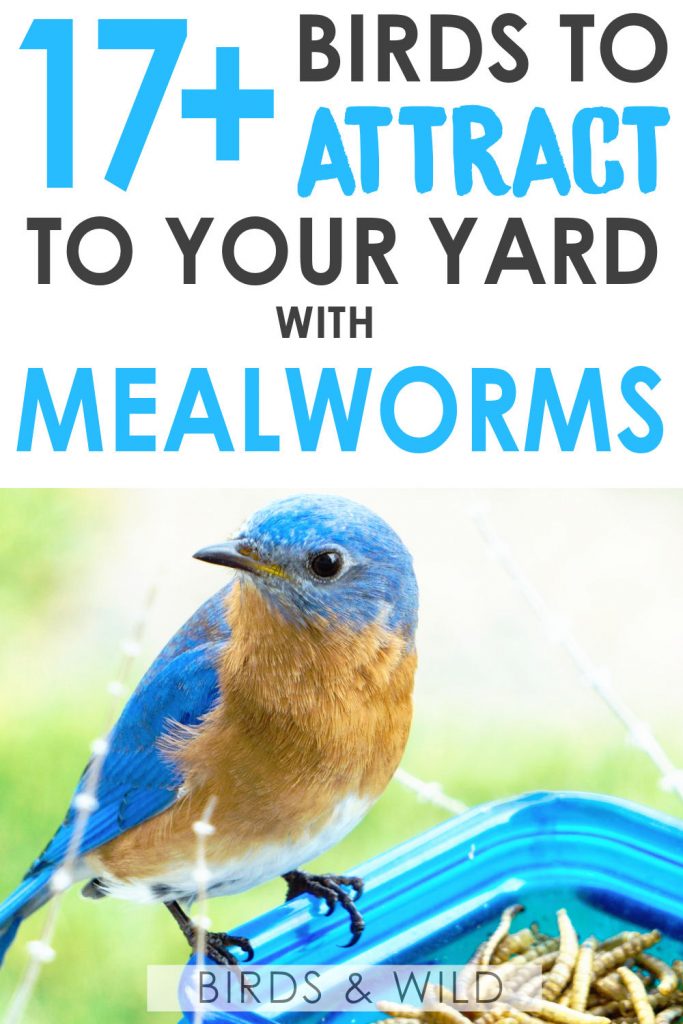
What Birds Like Mealworms?
There are two types of birds that mealworms attract.
1. Insect Eating Birds
That means that any insect-eating birds will love to chow down on a mealworm treat.
Most yard variety birds will eat insects, but it may not always be their favorite type of food to eat.
That means you can attract a whole new variety of birds to your yard by offering mealworms in your feeders.
You’ll most likely want to attract some sort of songbird to your backyard.
Most songbirds are insect eaters and mealworms are a great way to invite them into your yard.
Offer up mealworms and they’ll soon reward you every day with their lovely chirps and tweets.
2. Breeding Birds
Often birds will take mealworms to feed their nestlings.
Mealworms are a great food for baby birds as they are full of protein to help them thrive.
Keep reading to find out the best way to offer dried mealworms during the breeding season.
What birds eat dried mealworms?
Dried mealworms are much easier to buy and store for feeding birds in your backyard.
Most birds will prefer live mealworms over dried because it’s more natural for them to eat live insects.
Some adult birds will eat dried mealworms if they aren’t too picky.
Other birds can be fussier with dried mealworms and will avoid them if they’re mixed in with other foods.
Dried mealworms are thought to dehydrate nestlings. Let’s look at how you can solve this issue.
Pro Birding Tip for Dried Mealworms
If you’re having issues with birds eating dried mealworms try this:
Soak the mealworms in some warm water for around 30 minutes before putting them out for the birds.
The water will rehydrate the worms and make them appear plump, juicy, and nicer for birds to eat.
This will make it easier for birds to take the mealworms back to their nestlings to eat.
To be safe you should always hydrate mealworms during the breeding season for your most popular birds.
Try mixing some ‘plumped’ and dried mealworms in your feeder to train the birds to enjoy the dried mealworms too.
Serve the worms up in a mealworm feeder for easy eating.
Top 10 Birds to attract with mealworms
Some birds have a love of mealworms and will be very happy if you offer them up in your birdfeeders.
Remember birds usually have a preference for how they feed. That means you may have to mix up how you serve it to attract some of these birds.
So change up what other food you serve your mealworms with and where you place it. Then see what new species make a surprise visit to your yard.
This is our top 10 most popular sightings:
10. Wrens
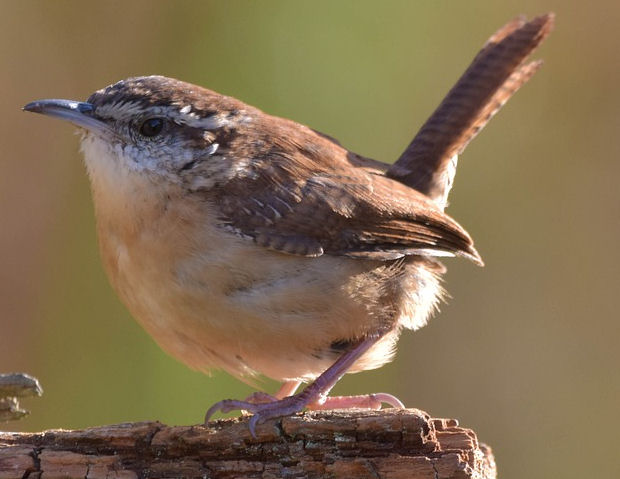
Wrens eat mealworms when they are on offer in your yard.
You’ll find they aren’t fussy about how they eat them so offer some up in your birdfeeder or scatter on the ground.
9. Cardinals
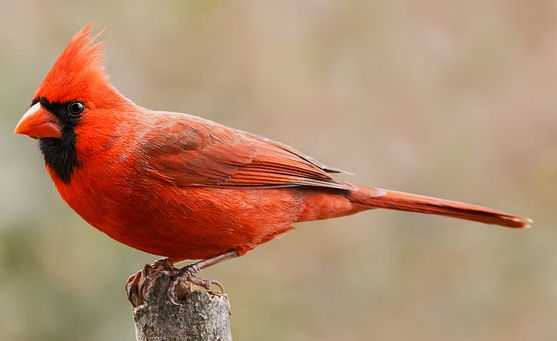
Cardinals eat mealworms, especially in the summer. This is prime breeding season and insects make up most of their diet during this time.
Mix mealworms with some seeds and fruits (they love blueberries) and this will attract cardinals to your yard.
8. Catbirds
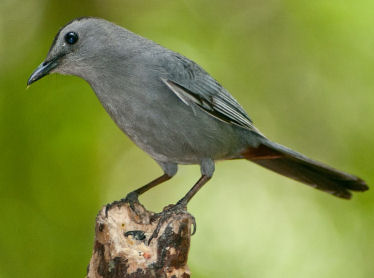
Catbirds enjoy eating mealworms. Insects and berries make up most of their diet.
You’ll find that mealworms in your feeder in early summer can attract catbirds to your yard.
7. Chickadees
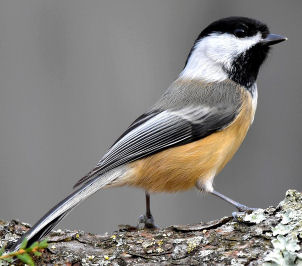
Chickadees eat mealworms as part of a mixed diet of insects, berries, and seeds.
These tiny birds are also big fans of nuts. You’ll be sure to have chickadees coming back for more by mixing mealworms with peanuts.
6. Nuthatches

Nuthatches eat mealworms, despite the name, their diet is insect-based.
They love to forage for insects so they may prefer it if you offer live mealworms. Or try my tip above about plumping up the dried mealworms.
5. Robins
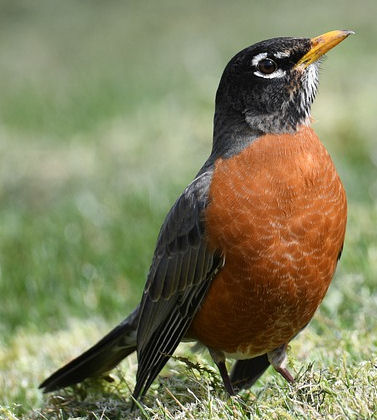
Robins like to eat mealworms as part of their insect-based diet.
You’ll notice robins aren’t a fan of birdseed so adding that in with mealworms is likely to put them off.
Don’t expect a robin to chow down on a birdfeeder. You’ll have more luck scattering mealworms or using mealworm-filled suet balls.
4. Brown Thrashers

Brown Thrashers enjoy eating mealworms, mixed berries and nuts.
They like to forage and will usually only eat at a feeder if you have shrubs nearby to cover them.
3. Towhees

Towees enjoy eating mealworms, suet, oats, and fruit.
You’ll have luck with using bird feeders as they are the best way to attract Towhees to your yard.
Towhees are even known to eat mealworms from your hand, especially if they have baby birds to feed.
2. Woodpeckers
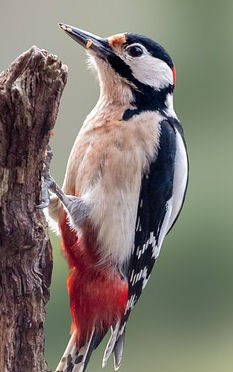
Woodpeckers like eating mealworms along with sap, nuts, seed berries, and fruit.
As woodpeckers are opportunistic eaters they’ll take what’s available to them. When other insects are hard to source in the winter, woodpeckers love the offer of mealworms.
1. Blue Birds
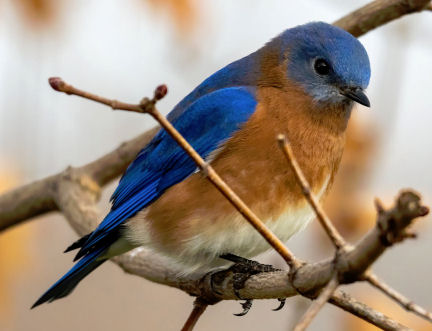
Without a doubt, if you put mealworms into your bird feeder you’ll be sure to attract one type of bird.
That’s the bluebird.
Bluebirds love to eat mealworms. They go crazy for them; especially live mealworms in the summer months when their diet is mainly made up of insects.
But will bluebirds eat dried mealworms?
If you’re using dried mealworms make sure you hydrate the mealworms first or the bluebirds will likely ignore your offerings.
Other Birds That Eat Mealworms
Our top 10 list isn’t the only bird that you’ll attract by putting mealworms out in your feeders.
There are lots of other backyard bird species that you may spot when you offer up mealworms in your feeders.
Let’s look at some other birds you may hope to attract with mealworms.
Do Hummingbirds Eat Mealworms?
Hummingbirds won’t eat mealworms offered in a feeder because they are too large for them to eat.
Nectar is their main source of food, but hummingbirds eat small insects to provide protein and fat in their diet.
Offering fruit or nectar and encouraging smaller insects such as spiders, aphids, and gnats that they can catch will attract them to your yard.
Do Blue Jays Eat Mealworms?
Blue Jays are a fan of eating dried mealworms. You’ll find they aren’t fussy about eating them from a feeder.
If you want to attract them to your yard make sure you mix the mealworms with their favorite treat: peanuts.
Do Sparrows Eat Mealworms?
Sparrows do eat mealworms, but they aren’t a favorite.
That is unless it’s breeding season.
Offer sparrows live or hydrated mealworms in your feeders from May through to September. This is when sparrows are feeding their young.
Be careful with overfeeding house sparrows. They are aggressive birds that will muscle in and discourage native bird species thriving in your area.
Do Orioles Eat Mealworms?
Orioles love to eat mealworms from feeders.
In fact, mealworms are one of the few foods you can put in a bird feeder that will attract orioles to your yard.
Orioles are quite fussy with their feeder food and will usually only stop by if you offer mealworms, fruit, jelly, or nectar.
Do Goldfinches Eat Mealworms?
Goldfinches don’t eat mealworms. In fact, they are quite picky eaters.
Most of the year goldfinches strict vegetarians that enjoy a grain-based diet. Sunflower hearts and thistle (also known as nyger seed) are particular favorites.
During springtime breeding season they will small flying insects but won’t entertain mealworms.
Do Warblers Eat Mealworms?
Warblers like to eat mealworms, but they might not be so keen on eating from feeders.
You should know that environment is a big issue for warblers.
They’re unlikely to come around unless there are trees, plants, and bushes to hide in.
You’ll have a lot of success attracting warblers using water. A water feature or bird bath in your yard is an easy way to attract warblers with water.
Do Mourning Doves Eat Mealworms?
Mourning doves like to eat mealworms.
Seeds make up around 90% of their diet, so mealworms won’t be the mourning doves first choice.
Adding a few mealworms on the odd occasion can help give mourning doves a vitamin boost into their diet.
Do Juncos Eat Mealworms?
Juncos love mealworms and will reward you with lovely songs to let you know that.
Wintertime is best to catch Juncos at your feeders but summertime is when they’ll feed on insects like mealworms.
Do Blackbirds Eat Mealworms?
Blackbirds eat mealworms, but they can be fussy about where they eat.
Blackbirds will prefer their mealworms if it’s offered on the ground or on a sheltered bird table.
You’ll find the best way to encourage blackbirds to eat mealworm is to mix it in alongside some dried fruit.
Do Starlings Eat Mealworms?
Starlings do eat mealworms.
This may become a problem for you as starlings are aggressive. They will prevent other birds from feeding in your yard.
If you find that they are being a bit of a pest to other birds in your yard; then discontinuing mealworms may help to solve the issues.
Otherwise, a caged birdfeeder (like this one) will keep out larger birds like starlings and let little songbirds feed with ease.
Final Thoughts
I hope this guide has given you a better idea of which birds eat mealworms.
Mealworms are the favorite of bluebirds, cardinals, wrens, robins, woodpeckers, and more.
Mealworms will attract most insect-eating birds. But the way you serve the mealworms can be make or break for some fussy bird.
If at first you don’t succeed with dried mealworms, try to hydrate them or offer them live.
Let me know what birds you’ve attracted to your yard by offering mealworms.

I’ve observed many of the same birds above enjoying mealworms! Mainly bluebirds and bluejays with the occasional carolina wren, rebellied woodpecker or brown thrasher. Lately though, a mockingbird has been getting all the mealworms I put out. He determinedly bullies all the other birds away (even the bluejays, now getting a taste of their own medicine). I’m working on a second bird feeder spot further away (try as he might, he can’t be in two places at once)!
That sounds like a great selection of birds you’re attracting Sarah. The bully birds can be extremely frustrating when they scare off the other birds, a separate feeder is a great idea. You can also check out the birds and wild guide on how to keep bully birds away from your feeders. I hope you have some success at keeping the mockingbird away.